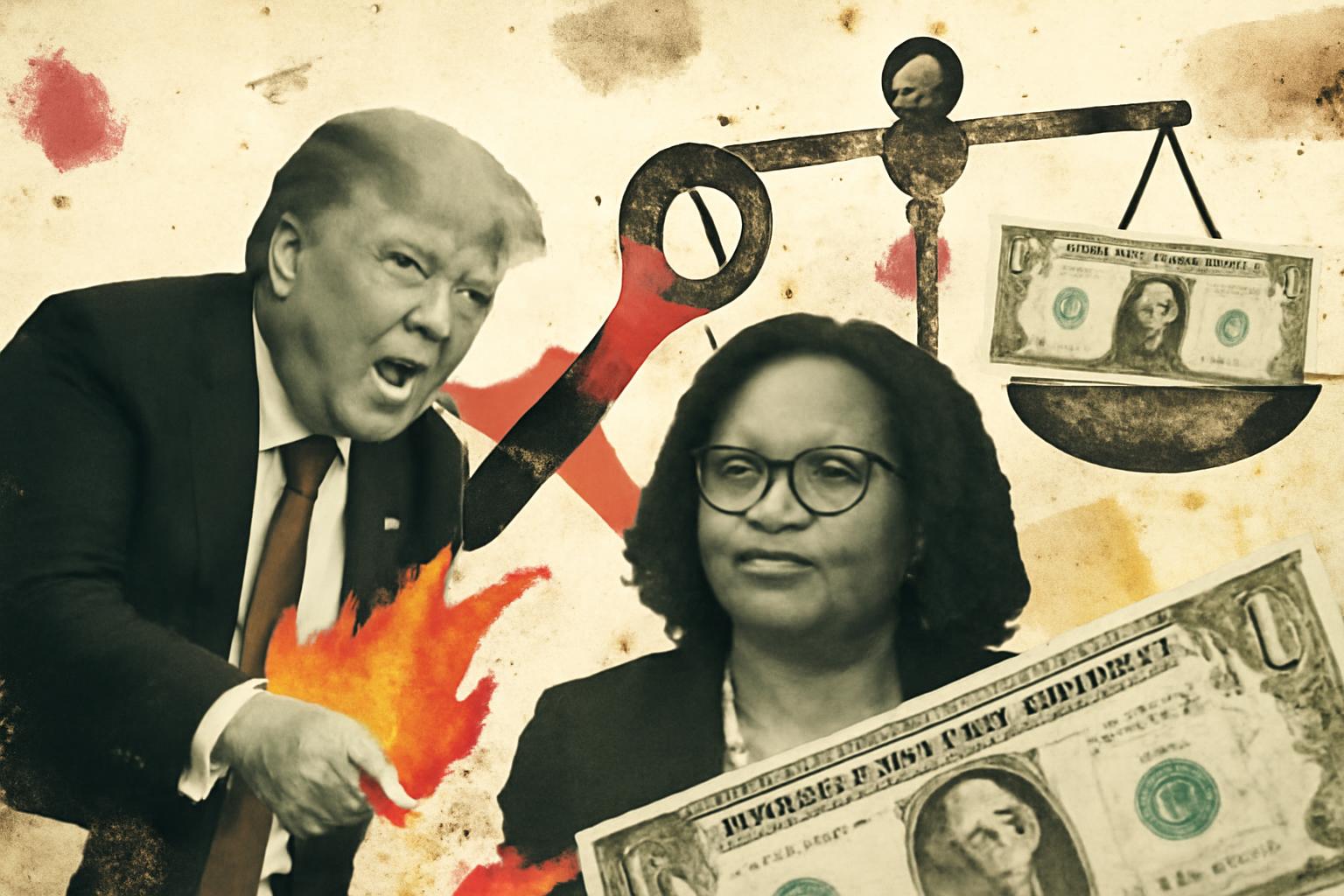Trump’s move to fire Fed Governor Lisa Cook with immediate effect, accusing her of gross negligence in mortgage contracts, exposes the naked truth about state power: it uses legal cover to weaponize insider influence and pursue political ends. Unprecedented as a sitting-president dismissing a Fed governor may be, the episode demonstrates the fragility of monetary independence and the fragility of any institution that allows political leverage to override rule-bound governance. If the removal is as described, it invites legal challenges and signals that fiscal-miscalibration can become a pretext for executive coercion rather than a reasoned appraisal of regulatory competence.
From a Hayekian lens, the central lesson is brutal but essential: knowledge is dispersed and the economy is a complex order that cannot be steered by fiat. The Fed’s independence exists precisely to shield monetary policy from the short-term incentives and partisan theatrics of the executive branch. Once political calculations enter the room—lower interest rates to ease the national debt or spur growth—the price signals that coordinate investment, saving, and production become distorted. Inflation risks rise as expectations shift with visible political meddling. Monetary policy ceases to be about prudence and becomes a tool of expedience, which, in Hayek’s view, corrodes the spontaneous order that emerges from decentralized decision-making.
Nozick would frame this as a stark reminder of the problems with a state that wields coercive power beyond the minimal functions of protection of rights. The Fed’s job, in a properly limited state, would be to secure contracts and provide a legal monetary framework, not to be an instrument for managing electoral outcomes or debt. When a president directly targets a regulator for political purposes, it undermines trust in the rule of law and invites a cascade of rent-seeking and cronyism. Rights-respecting governance would demand boundaries: if the monetary authority exists at all, its operations must be insulated from the whim of the day and anchored in clear, predictable rules that protect individuals from arbitrary manipulation of money and credit.
From Ayn Rand’s perspective, this is a stark example of statism’s prevail. The attempt to bend monetary policy to reduce the burden of national debt—while ignoring the moral hazard and hidden costs—reveals the collectivist impulse to prize power over principle. The coercive power of the state is being exercised not to defend individual rights, but to engineer outcomes through control of the money supply. A truly free society would require a drastic rethinking of money and governance: reduce or eliminate discretionary monetary authority, anchor value in objective standards, and insist that policy serves individuals’ rights and voluntary exchange rather than the political calculus of party leaders.
The upshot is radical: central banking, as exercised under political pressure, is an inherently fragile arrangement that invites misallocation, inflationary risk, and the erosion of trust in a free society’s price signals. The libertarian remedy is not cosmetic reform but a move toward constitutional limits that minimize state intervention in money, or even a transition to a rules-based, market-anchored money system that respects individual rights and eliminates the pathologies of political control. If the aim is to preserve liberty and prevent the state from weaponizing economics, the answer lies in stripping away the levers of centralized monetary manipulation and restoring the primacy of voluntary exchange, property rights, and rule-governed governance.
